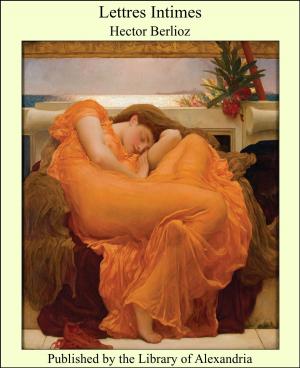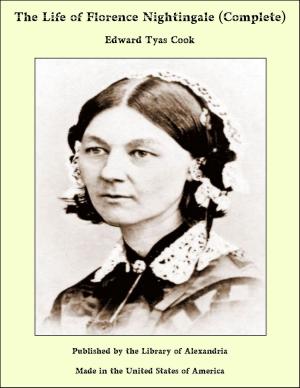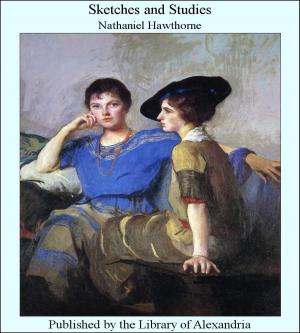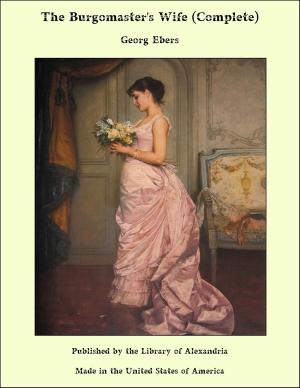With the King at Oxford: A Tale of the Great Rebellion
Nonfiction, Religion & Spirituality, New Age, History, Fiction & Literature| Author: | Alfred John Church | ISBN: | 9781465610836 |
| Publisher: | Library of Alexandria | Publication: | March 8, 2015 |
| Imprint: | Language: | English |
| Author: | Alfred John Church |
| ISBN: | 9781465610836 |
| Publisher: | Library of Alexandria |
| Publication: | March 8, 2015 |
| Imprint: | |
| Language: | English |
My father was the son of a gentleman of Oxfordshire that had a small estate near to the town of Eynsham, in that county. The monks of Eynsham Priory had the land afore-time; and 'twas said that here, as elsewhere, there was a curse upon such as held for their own uses that which had been dedicated to God's service. How this may be I know not, though there are notable instances—as, to wit, the Russells—in which no visible curse has fallen on the holders of such goods; but it is certain that my father's forbears wasted their estate grievously. Being but the third son, he had scarce, in any case, tarried at home; but, matters being as they were, the emptiness of the family purse drove him out betimes into the world. Being of good birth and breeding he got, without much ado, a place about the Court, which was not, however, much to his liking. I have heard him say—and this, though, as will be seen hereafter, he was a great lover of monarchy—that, between a weak king and villainous courtiers, Whitehall was no place for an honest gentleman. Robert Carr, that was afterwards Earl of Somerset, he liked little, and George Villiers, Duke of Buckingham, he liked yet less, being, as he was wont to say, by so much a greater villain than Somerset as a duke is greater than an earl. He was right glad, therefore, to leave the "sunshine of the Royal presence;" for so did men speak of the Court in the hyperbolical language of those times, even for so dismal and outlandish a part as Ireland. But I know not whether he did not wish himself back, for of Ireland he would never afterwards speak with any measure of patience, declaring that he knew not which were the worse, the greediness and cruelty of the English conquerors, or the savagery and unreason of the native people. Here he tarried for some three or four years, having, indeed, had bestowed upon him an estate, which, for its boundaries, at least, was of considerable magnitude, but from which he received nothing but trouble. Who hath it now I know not; and, indeed, he charged me to have nought to do with it, saying—for I remember his very words—"If they will give thee the whole island in fee, say them nay, for it is fit for nothing but to be drowned under the sea." Yet his next venture was not one whit happier, as will be readily concluded, when I say that he took service with Sir Walter Raleigh, whom he chanced to fall in with at Cork, at which place Sir Walter touched on his way to the Indies in search of gold. Gold got they none, but of hard blows not a few, and of pains and sickness still more. My father was with the boats that sailed up the river Orinoco, and caught in his arms, I have heard him say, Walter Raleigh the younger, when this last was slain by a bullet from a Spanish arquebuse. From this voyage he came back beggared in and purse not a little broken in health; to the end of his days indeed he suffered much at times from the fever that he contracted in those parts. The year following that wherein Raleigh was beheaded, came what seemed at the first sight good news, namely, that the Bohemians had bestowed the crown of their country upon the Elector of Bavaria, husband to the Princess Elizabeth, the king's daughter. Thereupon there arose such a tumult of joy throughout the country as the oldest man living scarce remembered to have heard before. There was nothing too good to be hoped for as about to come from this promotion.
My father was the son of a gentleman of Oxfordshire that had a small estate near to the town of Eynsham, in that county. The monks of Eynsham Priory had the land afore-time; and 'twas said that here, as elsewhere, there was a curse upon such as held for their own uses that which had been dedicated to God's service. How this may be I know not, though there are notable instances—as, to wit, the Russells—in which no visible curse has fallen on the holders of such goods; but it is certain that my father's forbears wasted their estate grievously. Being but the third son, he had scarce, in any case, tarried at home; but, matters being as they were, the emptiness of the family purse drove him out betimes into the world. Being of good birth and breeding he got, without much ado, a place about the Court, which was not, however, much to his liking. I have heard him say—and this, though, as will be seen hereafter, he was a great lover of monarchy—that, between a weak king and villainous courtiers, Whitehall was no place for an honest gentleman. Robert Carr, that was afterwards Earl of Somerset, he liked little, and George Villiers, Duke of Buckingham, he liked yet less, being, as he was wont to say, by so much a greater villain than Somerset as a duke is greater than an earl. He was right glad, therefore, to leave the "sunshine of the Royal presence;" for so did men speak of the Court in the hyperbolical language of those times, even for so dismal and outlandish a part as Ireland. But I know not whether he did not wish himself back, for of Ireland he would never afterwards speak with any measure of patience, declaring that he knew not which were the worse, the greediness and cruelty of the English conquerors, or the savagery and unreason of the native people. Here he tarried for some three or four years, having, indeed, had bestowed upon him an estate, which, for its boundaries, at least, was of considerable magnitude, but from which he received nothing but trouble. Who hath it now I know not; and, indeed, he charged me to have nought to do with it, saying—for I remember his very words—"If they will give thee the whole island in fee, say them nay, for it is fit for nothing but to be drowned under the sea." Yet his next venture was not one whit happier, as will be readily concluded, when I say that he took service with Sir Walter Raleigh, whom he chanced to fall in with at Cork, at which place Sir Walter touched on his way to the Indies in search of gold. Gold got they none, but of hard blows not a few, and of pains and sickness still more. My father was with the boats that sailed up the river Orinoco, and caught in his arms, I have heard him say, Walter Raleigh the younger, when this last was slain by a bullet from a Spanish arquebuse. From this voyage he came back beggared in and purse not a little broken in health; to the end of his days indeed he suffered much at times from the fever that he contracted in those parts. The year following that wherein Raleigh was beheaded, came what seemed at the first sight good news, namely, that the Bohemians had bestowed the crown of their country upon the Elector of Bavaria, husband to the Princess Elizabeth, the king's daughter. Thereupon there arose such a tumult of joy throughout the country as the oldest man living scarce remembered to have heard before. There was nothing too good to be hoped for as about to come from this promotion.















